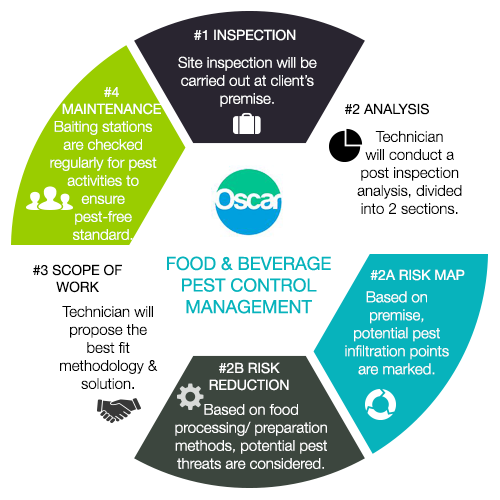Tips For Homeowners: Just How To Maintain Rodents Out Of Your Attic
Tips For Homeowners: Just How To Maintain Rodents Out Of Your Attic
Blog Article
Created By-Sutherland Bay
Imagine your attic room as a cozy Airbnb for rats, with insulation as cosy as hotel cushions and circuitry much more luring than area solution. Now, visualize these undesirable guests tossing a wild event in your home while you're away. As a home owner, guaranteeing your attic room is rodent-proof is not just about assurance; it's about protecting your home and loved ones. So, what easy steps can you require to protect your haven from these hairy trespassers?
Inspect for Entry Information
To start rodent-proofing your attic, inspect for access points. Begin by carefully checking out https://www.cdc.gov/healthypets/pets/wildlife/rodent-control.html of your home, seeking any kind of openings that rats could utilize to gain access to your attic. Check for spaces around energy lines, vents, and pipelines, in addition to any type of cracks or holes in the structure or home siding. Make certain to pay close attention to locations where various structure products fulfill, as these prevail entrance points for rats.
Furthermore, examine the roof for any kind of damaged or missing roof shingles, in addition to any spaces around the edges where rats can press via. Inside the attic room, seek indicators of existing rodent task such as droppings, chewed cables, or nesting materials. Make use of a flashlight to thoroughly check dark corners and hidden rooms.
Seal Cracks and Gaps
Inspect your attic extensively for any splits and voids that need to be sealed to prevent rats from getting in. Rats can press via even the tiniest openings, so it's essential to seal any type of potential entry points. Examine around pipes, vents, cords, and where the walls fulfill the roof covering. Utilize a mix of steel woollen and caulking to seal these openings effectively. Steel woollen is an excellent deterrent as rats can not chew with it. Guarantee that all gaps are snugly sealed to deny access to undesirable parasites.
Do not ignore the importance of sealing gaps around windows and doors too. Use weather stripping or door moves to seal these locations effectively. Inspect the areas where utility lines go into the attic room and seal them off utilizing a suitable sealer. By taking the time to secure all cracks and spaces in your attic room, you produce a barrier that rodents will find difficult to breach. Avoidance is type in rodent-proofing your attic, so be complete in your initiatives to seal any type of potential entry points.
Eliminate Food Sources
Take proactive actions to remove or store all prospective food sources in your attic to prevent rats from infesting the area. Rats are brought in to food, so eliminating their food resources is crucial in keeping them out of your attic room.
Here's what you can do:
1. ** Store food safely **: Stay clear of leaving any food items in the attic. Store all food in closed containers made from steel or durable plastic to avoid rodents from accessing them.
2. ** Tidy up debris **: Remove any heaps of debris, such as old papers, cardboard boxes, or timber scraps, that rats might make use of as nesting product or food sources. Maintain the attic room clutter-free to make it less enticing to rodents.
3. ** Dispose of trash appropriately **: If you use your attic for storage and have waste or waste up there, make sure to dispose of it frequently and properly. Decaying https://snakeremovalunderhouse84051.blogoscience.com/33069123/comprehending-the-unseen-revealing-hidden-home-pests can draw in rodents, so keep the attic room clean and without any kind of organic waste.
Final thought
Finally, keep in mind that an ounce of prevention is worth a pound of treatment when it involves rodent-proofing your attic.
By taking the time to evaluate for access factors, seal fractures and spaces, and remove food sources, you can keep undesirable parasites away.
Keep in mind, 'An ounce of prevention deserves an extra pound of treatment' - Benjamin Franklin.
Remain proactive and protect your home from rodent infestations.
